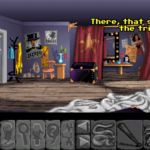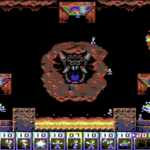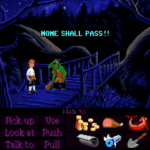Legendary Olympian Daley Thompson is trending on social media today, so what better time to remember one of the greatest 8-bit era games of all time, Daley Thompson’s Decathlon?
Released in 1984 following Thompson’s second Olympic gold medal in the 10-stage event, Daley Thompson’s Decathlon was an early success for Ocean Software (now part of Bandai Namco), with a series of side-scrolling events.
The player takes part in the ten events of the modern decathlon over the course of two days: 100 metres, long jump, shot put, high jump, and 400 metres, 110 hurdles, pole vault, discus, javelin, and 1500 metres. The game was joystick-intensive, with a hell of a lot of shaft waggling required to get anywhere close to winning an event, and as such considered a joystick killer. If keyboard control was an option, the control mechanism was to hammer a pair of keys in quick succession.
Released for the Commodore 64, Amstrad CPC, Sinclair ZX Spectrum and with music by Martin Galway, the game was coded by Paul Owens, Christian Urquhart, and Dan Hartley. While many sport games could be considered to require excessive practice, events in Daley Thompson’s Decathlon were winnable. However, completing the decathlon and winning the competition was another matter entirely.
Significantly, Daley Thompson’s Decathlon holds an important place in the 8-bit cultural heritage of British gaming. A two player game where athletic achievement could be demonstrated indoors, Decathlon was memorable for all the right reasons by everyone who played it.
It also gave players the chance to get a digital flavour of Thompson’s double achievement, something that made him a household name in 80s Britain. We’re certain that Daley Thompson’s Decathlon played a small part in that.
Affiliate Disclosure: Some of the links in this post may be affiliate links, which means I may earn a small commission if you make a purchase through those links. This comes at no extra cost to you. Thank you for your support!
Christian Cawley is the founder and editor of GamingRetro.co.uk, a website dedicated to classic and retro gaming. With over 20 years of experience writing for technology and gaming publications, he brings considerable expertise and a lifelong passion for interactive entertainment, particularly games from the 8-bit and 16-bit eras.
Christian has written for leading outlets including TechRadar, Computer Weekly, Linux Format, and MakeUseOf, where he also served as Deputy Editor.
When he’s not exploring vintage consoles or retro PCs, Christian enjoys building with LEGO, playing cigar box guitar, and experimenting in the kitchen.






